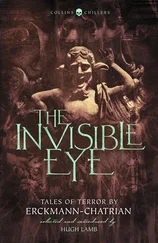Jacob lowered his head and fumbled for the glass, which Shoshanah took up and placed in his hand. Again she sat back in her place. Apart from passing him some dish from time to time, she paid no attention to him. Jacob thought to himself, Evidently she is sorry that she greeted me so warmly at first.
The waiter came up and set before each of them a small cup of black coffee. The aroma mounted. It reminded him of his room, where he would read alone over his drink with nobody’s eyes upon him. He looked down at the coffee. A pale, brownish foam bubbled up on its surface. The foam was full of little eyes that flickered like sparks.
“Don’t you take sugar?” asked the Consul.
“Oh yes,” Jacob answered, but still forgot to take any.
Shoshanah picked up the silver tongs, secured a lump and dropped it into his cup. “Another?” she asked, and caught a second lump.
“Thank you,” he said, and began to wonder whether the instinct to recoil from what harms us would not hold Shoshanah back; for if the sugar fell into the full cup, the coffee would spill over. Then again it seemed to him that this was the first lump after all, there was no need to fear, for when the coffee was poured allowance must surely have been made for the sugar.
The Consul took out his cigar case, offered a cigar to Jacob and chose one for himself. Taking Rechnitz’s arm he strolled up and down with him, while the smoke rose up until their cigars were half burnt out, though ash still stood on the tips. The Consul halted in the middle of the lounge, removed his ash, and said, “So here we are, seated together again.” Suiting action to word, he walked across to the sofa and sat down opposite Shoshanah, settling Jacob beside him on his right.
He looked across at his daughter, then turned to Jacob, saying, “I’m sure you are busy in the afternoon, so come around this evening and we’ll dine together. Wouldn’t that be nice, Shoshanah?”
Shoshanah inclined her head in agreement. Evidently her mind was not on what she was doing, but all the same the gesture, however unaware, was pleasant to see.
Actually Rechnitz was free that afternoon, but since the Consul had declared him to be busy he could hardly contradict him. He recalled something he had read in some book of philosophy: how those motions of the soul that urge us on cannot bring us to act without the help of other, external factors. And if these external factors do not collaborate, all the motions of our soul are vain, and lead only to inner confusion. Rechnitz could indeed have consoled himself in the knowledge that he would be returning for supper; but he found no comfort in this, for the barren hours seemed to stretch on endlessly till evening.
Stripped of all cheer, he walked away from the hotel. He said to himself: Since they are here, I will do everything I can. But if they go, let them go. I will have a clear mind again. Why give myself needless cares? What is needless is not needed. I shall try to do what is right, and that is enough. Don’t blame me, Shoshanah, if you were mistaken in me, if you thought I still deserved the love you had for me once. We aren’t children at play anymore, but grown persons who have known the years. What a pity we aren’t happy now!
VIII
A free afternoon. On free days, or at least on free afternoons, Rechnitz would stay in his room, make coffee for himself and read a book. When he had had enough of reading, he would get up to sort out his specimens, or take a walk by the shore in search of new ones. But today he felt no inclination to go home. He had already had coffee, and that deprived him of half his satisfaction, which lay in the pleasure of preparation. He would put the pot on to heat, watch the flames rise through the perforations in the burner and envelop the pot, while the water bubbled and boiled, rose and fell, and he would shake the coffee grounds down on the water and smell the aroma that filled his room. The only alternative was to walk by the sea. Yet a walk by the sea did not appeal to him much. He had overeaten at the hotel; perhaps, too, he felt weighted down by the wine he had drunk. Some of the things he had said in the Consul’s presence came back to his mind, and although he didn’t exactly find fault with them, an unaccountable sadness took hold of him. His fancy wandered and returned, but he lacked the power to center his thoughts on one subject.
Leah Luria came by and saw Rechnitz alone. “Sir, you stand in the markets of Jaffa as if the world were yours,” she said.
Rechnitz buttoned up his coat and replied, “I feel more as if there were no place for me in the world.”
Leah stared at him with her two fine eyes. “I hope to God that nothing has gone wrong, Doctor.” Her voice was full of distress and concern, and a will to hit upon some good advice or suggestion. Her face, too, spoke of a longing to advise him, to save him from trouble.
Rechnitz shook his head. “Nothing’s wrong at all, but when a man finds himself idle in the middle of the day, then he surely doesn’t know what to do.”
Leah said, “If a walk is something to do, we can walk for a while; only I promised to call on Rachel Heilperin. Let’s go over to her place, perhaps she will come too.” She looked at the watch on her wrist. “She must be waiting for me now. Would you come with me?”
Rechnitz answered with a little singsong, “And why not?”
She laughed. “Let’s go, then.”
“Come on.” It hardly mattered whether he walked with one or with both of them, so long as it made his heart a little lighter.
Even though Leah Luria had given up studying German conversation when she gave up her trip to Berlin the year before, she and Jacob still kept to their walks. Anyone who saw them together would say that there went a perfect couple. And perhaps Jacob and Leah thought the same, each in his own way; except that Jacob thought similarly, or not very differently, about himself and Rachel Heilperin, and perhaps about himself and another, as we shall soon see. And perhaps these others, too, were of the same opinion, each in her own fashion.
Leah was not very young; she was already twenty-three or four. Her features were full, her face was neither too long nor too round, her forehead was smooth. She had ash-blonde hair and a full body, which she carried with such dignity as to impress everyone she met. She herself could never understand the attentions she received, and her manner suggested surprise; while, out of fear that she might bore her companions, she spoke little. Yet this very reticence added to her charm; for she gave the impression that if only she were to speak, one would hear words of wisdom. Her complexion was on the dark side; she wore a bright turquoise dress with a light chain round her neck, and thick-soled country shoes which added to her height and loosened her stride. Her arms were round and warm, her eyes seemed pleased at all you did. And even though these eyes might at first appear to be astonished, it was clear in the end that they approved of whatever you did. Why, you may ask, had Leah not found her partner in life? Because Rachel was the more beautiful girl. Tall and slender as a palm tree, to use the biblical image, without an ounce of fat on her flesh. Her eyes would light up occasionally, though for the most part they expressed chill indifference, and her lips would smile in such a way that you would gladly give her your heart, even before she took it for herself. Why then had Rachel not found her partner? Perhaps because of Leah, who demanded nothing of you, and in demanding nothing, led you to want to give her all. The reason for this is not as clear as it might be, but despite the confusion, it works strangely on the soul.
IX
Rachel and Leah were girls of good family, whose fathers had their place in the history of the Zionist Return. One of them was a correspondent of the great Ahad Ha’Am, who addressed him as “My esteemed friend.” The other’s opinions carried weight with the Odessa Council, and even with Lilienblum and Ussishkin.
Читать дальше












